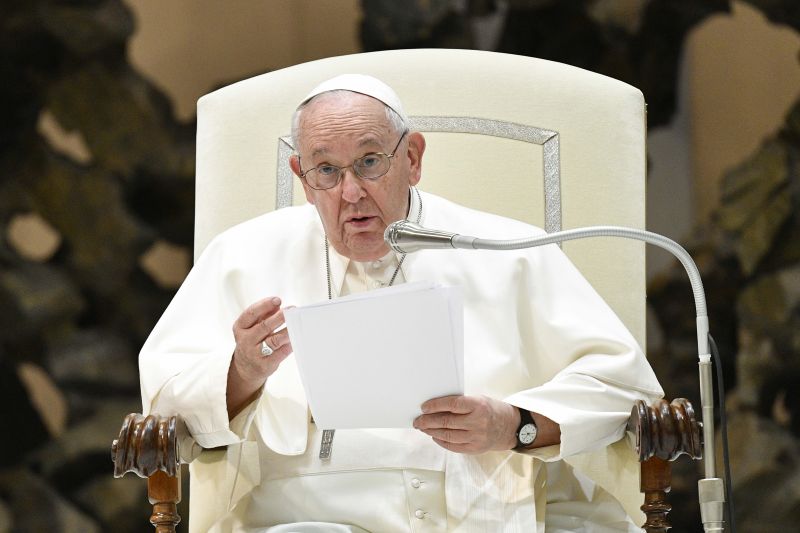
Vatican City, Apr 1, 2019 / 11:40 am (CNA).- Pope Francis said Sunday that homosexual tendencies are not sins, and that parents who are concerned about tendencies in their children should take them for psychological assessment before jumping to conclusions.
Asked about “Who am I to judge,” a well-known remark the pope made in 2013, Francis said that “sin is an act: of thought, word and deed, with freedom. Tendencies are not sin. If you have a tendency to anger, it is not a sin.”
“Now, if you are angry and hurt people, the sin is there,” he added, highlighting the distinction between inclination and act that is central to the Church’s moral teaching regarding homosexuality.
Pope Francis was speaking during a March 31 Spanish television interview conducted by Spanish journalist Jordi Évole. The interview aired on Spain’s La Sexta channel Sunday night.
The pope advised parents who think a child might have homosexual tendencies, especially during key developmental years, to “go to a professional, to a psychologist,” to see what could be going on, before making a “diagnosis” of homosexuality.
“Please consult with and go to a professional and there you will see what it is, it may be that he is not homosexual, it is due to something else,” he said.
In a 2005 instruction regarding seminary admission policies, the Church draws a distinction between those with “transitory” homosexual tendencies and those inclinations which are “deep-seated.” The pope’s remarks seemed to draw from that distinction.
Some homosexual tendencies, that instruction says, are “only the expression of a transitory problem – for example, that of an adolescence not yet superseded.”
The Catechism of the Catholic Church teaches that “‘homosexual acts are intrinsically disordered.’ They are contrary to the natural law. They close the sexual act to the gift of life. They do not proceed from a genuine affective and sexual complementarity. Under no circumstances can they be approved.”
The Catechism adds that “the number of men and women who have deep-seated homosexual tendencies is not negligible. This inclination, which is objectively disordered, constitutes for most of them a trial. They must be accepted with respect, compassion, and sensitivity. Every sign of unjust discrimination in their regard should be avoided.”
“Homosexual persons are called to chastity. By the virtues of self-mastery that teach them inner freedom, at times by the support of disinterested friendship, by prayer and sacramental grace, they can and should gradually and resolutely approach Christian perfection,” the Catechism adds.
If you value the news and views Catholic World Report provides, please consider donating to support our efforts. Your contribution will help us continue to make CWR available to all readers worldwide for free, without a subscription. Thank you for your generosity!
Click here for more information on donating to CWR. Click here to sign up for our newsletter.





Leave a Reply